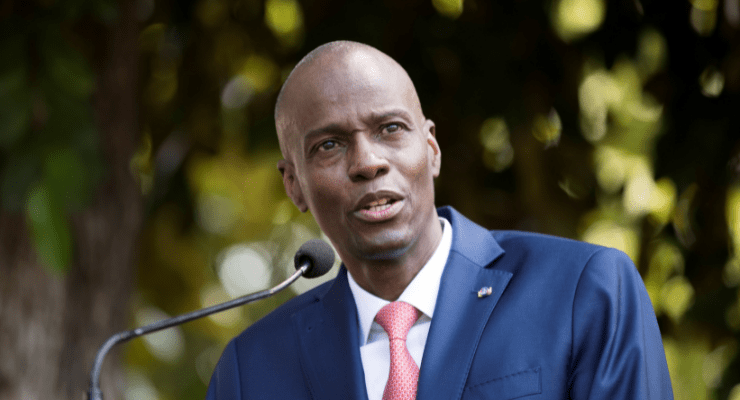
Australians lamenting lockdown this morning might spare a thought for the growing number of nations that have been brought to the brink during the pandemic.
While we grapple with such first world problems as whether a florist is an essential service, from the Caribbean to the Middle East and Africa there is turmoil exacerbated by the COVID-19 crisis.
As well as those traditionally turbulent names, there some like South Africa and Cuba that have not faced such upheaval in decades. And some, like Lebanon, are facing failed-nation status.
Political strife in Beirut is nothing new but this time the country is facing complete collapse after a breakdown of its political, economic and security systems. Acting Prime Minister-designate Saad Hariri stepped down on Thursday after failing to form a government after eight months of political wrangling, violent protests and economic disaster.
It is exactly a year since an explosion destroyed the port of Beirut and blew up the nation’s fragile sectarian government with it. Since then protests have escalated and the economy has disintegrated.
The Lebanese lira has lost 90% of its value, wiping out the savings of much of the country and forcing banks to freeze accounts. At least half the population has fallen into poverty and a 400% rise in food prices has left an estimated two-thirds of the population without sufficient food.
COVID has only escalated the country’s woes.
Africa has also had a long history of struggling developing nations and COVID has exacerbated their decline, but now even the most prosperous country on the continent has joined the turmoil. This week more than 70 people were killed in South African protests and nearly 2000 arrested. The army was deployed across the country and there were violent scenes not seen there for decades.
The catalyst for the riots was the jailing of former president Jacob Zuma, but the situation has been deteriorating for years and, once again, coronavirus has escalated the economic and social collapse.
It’s a similar story in Cuba. This week there were unprecedented uprisings against the communist regime and the arrest and disappearance of hundreds of protesters.
The widespread and rare revolts are being blamed on the government’s mishandling of COVID which has led to price rises and food and medical shortages.
Meanwhile the United States has announced it is sending half a million doses of COVID vaccine to another embattled Caribbean country, Haiti, the only one in Latin America not to have begun a vaccination program.
There had been calls for US President Joe Biden to send troops to the island after the assassination last week of President Jovenel Moise left it on the brink of collapse. Those calls came in the week that the US formally withdrew its troops from Afghanistan, leaving Americans with little appetite for more military interventions but plenty of room for global humanitarian efforts like vaccine diplomacy.
China is filling that vacuum by providing plenty of its own vaccines to developing nations that are being left out in the Hunger Games-style vaccine nationalism we’ve been witnessing around the globe.
Last week a US donation of 1.4 million COVID vaccines arrived in Afghanistan which is battling a brutal surge in infections to add to its myriad problems.
China had already donated 700,000 vaccines to Afghanistan as part of its growing ties with the nation ahead of the expected collapse of the current government and takeover by the Taliban. (At least the Taliban have softened their usual anti-vaxxing stance when it comes to the COVID vaccine drive which they have been backing.)
China has also provided vaccines to Malaysia, another nation buckling under another COVID wave. It is just another country where the government’s mishandling of the health crisis is fuelling political unrest.
It won’t be the last.








The US to the rescue? I dont’ think so.
The United States has announced it is sending half a million doses of COVID vaccine to another embattled Caribbean country, Haiti, the only one in Latin America not to have begun a vaccination program. ..a result of corruption in all levels of government; something the Trump Republicans and the Coalition here are good at and have discovered under Morrisin has no consequences….
How is the Morrision and Berjiklian regimes any different?
Corruption in Haiti “is not the activity of a few rogue officials or politicians” but is more like “organized crime”, with corrupt procurement deals arising through collusion and kleptocratic racket.” Government corruption is ingrained in Haitian politics.
Former FIFA vice-president and CONCACAF president Jack Warner was accused of diverting $750,000 in 2010 Haiti earthquake relief funds into his own bank accounts.
Haiti is the conduit for the movement of a billion dollars worth of cocaine worth Haiti’s military rulers, $200 million of which is snorted up in profits by the Haiti military rulers.
Isn’t Haiti a recipient of USA know-how, business investment, etc supposedly leading to the “American way of life”? Are the people ever going to get there?
Why was it necessary to say communist regime instead of Cuban government ,a touch of bias showing here.!
they do the same with China,
Thanks Janine for this essay on really important matters. I subscribed to Crikey so that I could read material like this, not wanky nonsense about local fantacists who want to re-write the history of our indigenous people in a way that suits some kind of bizarre, heterodox theory.
Don’t panic. Frewen will be in control. Defence can confirm that a member at HMAS Cerberus has tested positive for the Delta variant of Covid-19 on 15 July 2021.
The catalyst for the riots was the jailing of former president Jacob Zuma
Well they got him at last, but not on all his crimes, especially those against women.